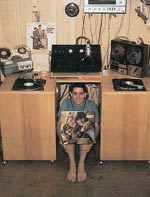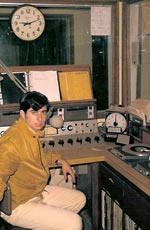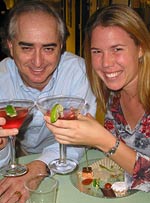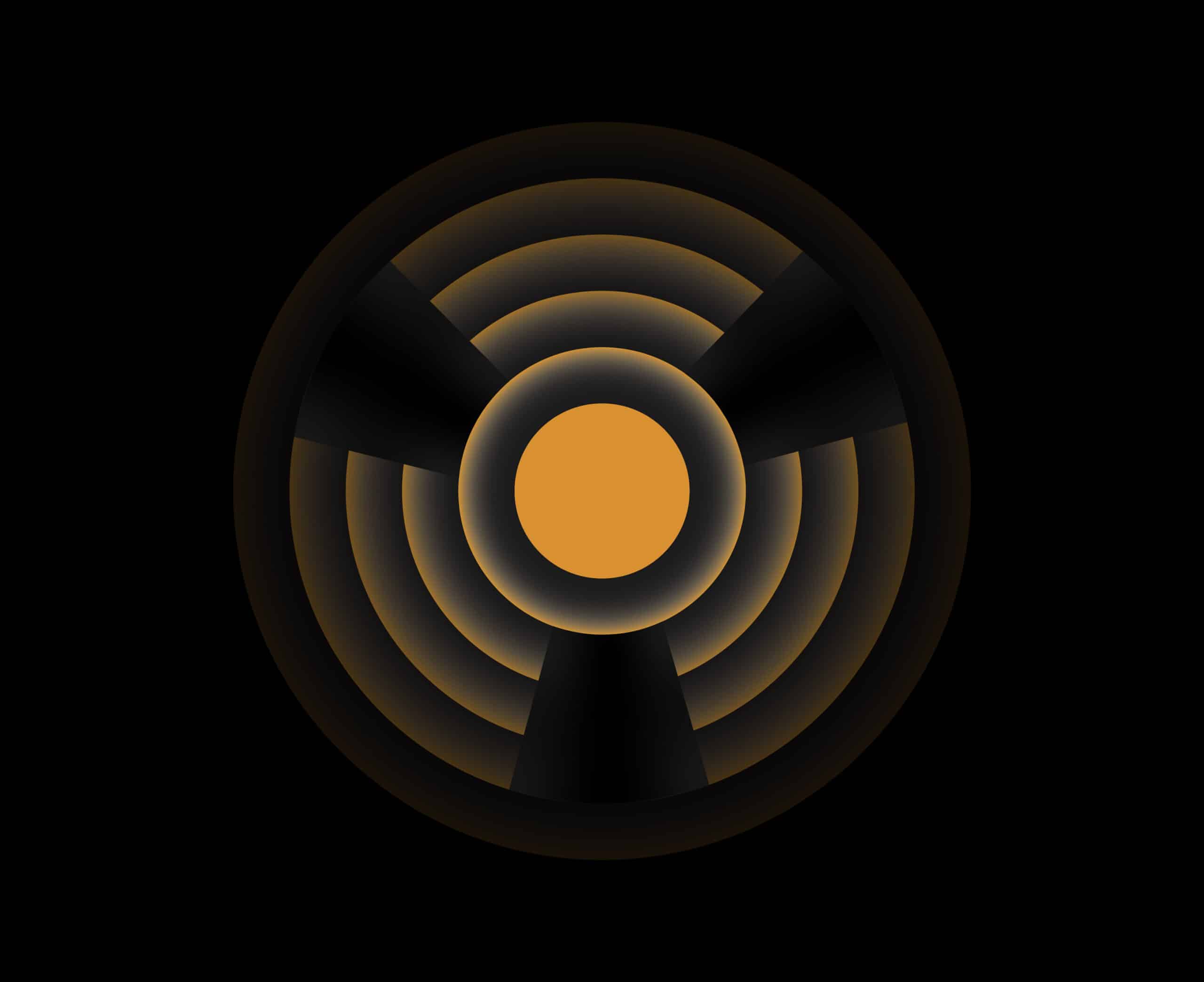The Norm Garr Collection
|
|
The announcing bug hit Norm Garr very early in life, when among a collection of birthday gifts there was a "working" microphone and speaker. Hours of listening to KFWB and KHJ in the 60's kept the "announcing" bug alive, including many opportunities to sit in on the Johnny Williams show at the Boss Radio station.His first real DJ job was in the summer of 1970 as a weekender at KUDU, Ventura, CA., a "BOSS" country station that had every Drake-type jingle, a SOLID GOLD weekend, et. al.
For his senior project at San Diego State University, Norm interviewed a number of air personalities, including Robert W. Morgan and B. Mitchell Reed. (Some day, down the road, those interviews might show up in the Repository). Also, during his time at SDSU from 1970-1972, Norm netted some "golden" time with legendary programmer Ron Jacobs at KGB, where Norm was interning — and that was after a previous internship at KCBQ with Buzz Bennett & Rich Brother Robbin. Bobby Ocean, Shotgun Tom Kelly, Eric Chase, Barry Kaye, Christopher Cane, K.O. Bailey and Chuck Browning were among the personalities working in San Diego at the time. WOW! After returning to LA to spend three years working as a news assistant at KNXT-TV and a sports producer at KFI radio, Norm did weekends and fill-in again at KUDU, and then KACY in Ventura, CA., until he went to Longview, WA. for two years as a news director and operations manager. Norm returned to LA to pursue his dream of working in network television, which he did for three years at NBC. His "executive assistant" roles have taken him to the every major motion picture studio in Hollywood, including eight years at Disney and almost four years at MGM/UA. Norm is presently (and possibly, permanently) retired, but very busy doing all the things he never had the time to do while working 50-60 hours weeks in the "biz." |
The Repository thanks Norm Garr for sharing!
Robert W. Morgan is on top of his game guiding us through the GOLDEN YEAR 1971.
In the news: there is tragedy for the Soviet space program. Who won Super Bowl 5, Best Picture and the Frazer/Ali fight? On the political front, Nixon is battling the nation’s woes with drug addiction and the war in Indochina.
12 “heavy hits” (copyright: The Real Don Steele) are featured, interspersed with snippets of some of the year’s other top songs. The set list is, for the most part, straight off the Billboard year-end charts.
Al Green shares his feelings of loneliness; Bee Gee Robin Gibb reveals how quickly the hits roll; Tony Orlando explains a “structure malfunction”; and Donny Osmond experiences the loss of a “perfect take.”
Drake/Chenault’s syndicated version of THE GOLDEN YEAR: 1971
Robert W. Morgan is on top of his game guiding us through the GOLDEN YEAR 1971.
In the news: there is tragedy for the Soviet space program. Who won Super Bowl 5, Best Picture and the Frazer/Ali fight? On the political front, Nixon is battling the nation’s woes with drug addiction and the war in Indochina.
12 “heavy hits” (copyright: The Real Don Steele) are featured, interspersed with snippets of some of the year’s other top songs. The set list is, for the most part, straight off the Billboard year-end charts.
Al Green shares his feelings of loneliness; Bee Gee Robin Gibb reveals how quickly the hits roll; Tony Orlando explains a “structure malfunction”; and Donny Osmond experiences the loss of a “perfect take.”
Drake/Chenault’s syndicated version of THE GOLDEN YEAR: 1971
Robert W. Morgan opens the series with music and news from the GOLDEN YEAR 1972.
In the news: The Democrat Party thinks someone is watching them; more Nixon?; Gov. George Wallace can’t dodge this bullet; and tragedy at the Olympics.
14 chart-topping hits are featured, interspersed with snippets of some of the year’s other top songs. Accept it: we will “get you hooked” on the GOLDEN YEARS! Among other things, you’re going to stay for a sugar high from the man with the sweets, you will cherish an opportunity to replace your old key, have a slice of your favorite desert – plus a “shot” to wash it down – and a chance to lean on Bill!
Mac Davis and Gilbert O’Sullivan give us lessons in songwriting; Don McLean talks about “hidden messages”, and what inspired Roberta Flack?
Drake/Chenault’s syndicated version of THE GOLDEN YEAR: 1972
Robert W. Morgan opens the series with music and news from the GOLDEN YEAR 1972.
In the news: The Democrat Party thinks someone is watching them; more Nixon?; Gov. George Wallace can’t dodge this bullet; and tragedy at the Olympics.
14 chart-topping hits are featured, interspersed with snippets of some of the year’s other top songs. Accept it: we will “get you hooked” on the GOLDEN YEARS! Among other things, you’re going to stay for a sugar high from the man with the sweets, you will cherish an opportunity to replace your old key, have a slice of your favorite desert – plus a “shot” to wash it down – and a chance to lean on Bill!
Mac Davis and Gilbert O’Sullivan give us lessons in songwriting; Don McLean talks about “hidden messages”, and what inspired Roberta Flack?
Drake/Chenault’s syndicated version of THE GOLDEN YEAR: 1972
Keep in mind that this program was broadcast in February, 1969. Woodstock was yet to happen, and Monterey was the pinnacle of contemporary music performance. Both Jimi Hendrix and Eric Clapton have comments, along with Producer Tom Dowd (Layla).Complete closing credits for the production are included in this segment, and there’s a honor roll of RKO heavies from all over the country. It’s obvious that even as this final hour was broadcast, there were already plans for distribution to other RKO stations.
Our host is Robert W. Morgan, and the first 85 minutes of KHJ after this hour is here.
Thanks to Norm Garr for the final 21 hours of the Original KHJ History of Rock And Roll.
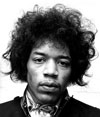
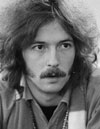
And groups we get, from Them to Turtles, Brummels to Rascals, Monkees to Mamas, and much more.
Included is a revealing comment from Bill Graham, who is remembered for producing some of the greatest Rock ‘n’ Roll Concerts of the Sixties and Seventies.
Our host is Robert W. Morgan.
Norm Garr contributed this recording, one generation from the master.
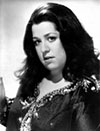
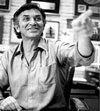
What isn’t included here is 13 minutes for news and/or commercial content. There is a short instrumental bed where the news would have been. It was likely provided to adjust for time.
Our host is Robert W. Morgan.
Norm Garr contributed this recording, one generation from the master.


[Description by Uncle Ricky]
This original hour of the KHJ History Of Rock And Roll aired between 1PM and 2PM on Sunday afternoon, February 23, 1969. Hour 45, dedicated to The Beatles, is the third of a six-hour segment devoted to Groups.
Minus eight minutes for news or commercial content in this hour, which includes a lot of music, Little Richard, Bobby Darin, Chuck Berry and Paul Anka all have something to say, and there are also many comments from The Beatles, themselves. Our host is Robert W. Morgan.
The recording was contributed by Norm Garr. Norm’s recordings are one generation from the masters, mixed for contestants who won a complete copy of the program.


[Description by Uncle Ricky]
KHJ presented the 44th hour of the original History Of Rock And Roll between Noon and 1PM on Sunday afternoon, February 23, 1969. Hour 44 was the second of a six-hour segment devoted to Groups.
Only five minutes was left for news or commercial content in this hour, and that is not included here. The Beach Boys and The 4 Seasons get some attention, and The Exciters and Gerry & The Pacemakers get honorable mentions. Our host is Robert W. Morgan.
The recording was contributed by Norm Garr. Norm’s recordings are one generation from the masters, mixed for contestants who won a complete copy of the program.


[Description by Uncle Ricky]
KHJ presented the 43rd hour of the original History Of Rock And Roll between 11AM and 12Noon on Sunday morning, February 23, 1969. Hour 43 was the first of a six-hour segment devoted to Groups.
Beginning in the early 1950’s with some authentic samples of R&B groups of that era, this segment of the History moves quickly into R&B and pop groups of the early 1960’s. When originally broadcast, this hour included about 15 minutes of news and commercial content, which is not heard in this exhibit. Our host is Robert W. Morgan.
The recording was contributed by Norm Garr. Norm’s recordings are one generation from the masters, mixed for contestants who won a complete copy of the program.



